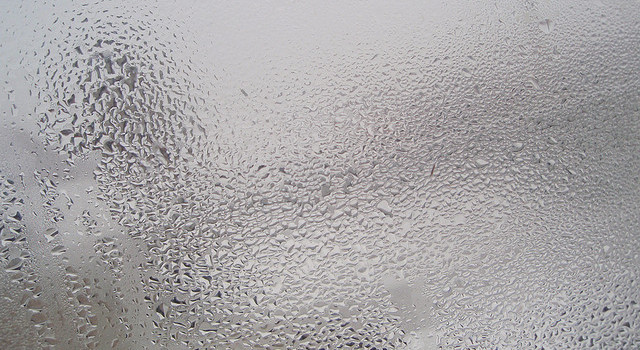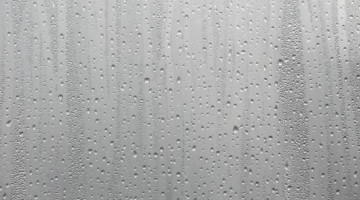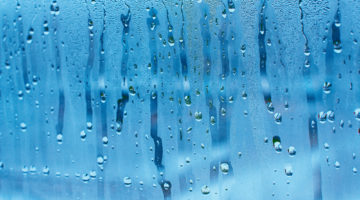
Condensation can cause some serious problems in the home, and at this time of year the problem only gets worse. How can you prevent it? How can you fight it? And how can you defeat it long term?
What causes condensation?
Condensation has become more of a problem in recent years. This is because of a number of developments that have led to a perfect storm of moisture in the home. Firstly, homes are heated far more than they used to be – central heating is everywhere, and hot water is used liberally. Warmer air can trap more moisture, and there is more moisture available. That leads to our second reason – homes use more moisture generating appliances than ever before: tumble dryers, washing machines, power showers and dishwashers all send beads of moisture into the atmosphere of the home. When colder weather comes, that leads to more moisture collecting on people’s windows and walls.

Is your damp caused by condensation?
We do get lots of people asking what is causing their damp, and there are a few different potential causes with very different solutions. If you are sure your damp is being caused by condensation, or you have a problem with condensation in itself, then we have some potential solutions below. If your damp is penetrating or rising damp, then you will need an alternative solution. You can read more about the different types of damp here.
Control the humidity
It may seem obvious, but reducing the moisture being created in the home, and removing it where possible, will reduce the condensation problem. There are lots of ways to do this, for example:
- An extractor fan is a form of mechanical ventilation that takes moist air in your bathroom and ejects it outside. This can work really well if your condensation is mainly in the bathroom and caused by your hot showers.
- A dehumidifier will extract moisture from the air, reducing the humidity in the room. These really do work well, but they are expensive to run in the long term, and can be a little noisy.
- Fitting vents to your windows, or installing windows with vents, will allow cooler dryer air to enter the room, diffusing the moister air and reducing condensation. Too much ventilation will make your home draughty however.
- You can take a more proactive approach by reducing the generation of moisture. Try not to take too hot a shower, and open the windows when you are cooking something on the hob, or having a wash.
- If condensation builds up on your windows, wipe it down with a cloth. This is obviously not something you want to have to do every day, but in the short term it will help.
- Insulation prevents condensation
Insulation reduces condesation
Installing wall insulation is a great way to combat damp. For those with old solid walls, condensation based damp can be a real problem. This is because thin, uninsulated walls are cold, and moisture from the warm air condenses on its surface, making it moist and a breeding ground for mould. Insulating the walls helps increase the internal surface temperature of the walls, which reduces the amount of moisture that can condense on the wall.
Mould Proofing
If you have particular problem areas where the condensation is causing mould, rather than a more general problem across the home, there are certain tactics you can use against that area. Mould proofing products like Asanex will kill off any mould on the wall and provide a protective coating to discourage mould growth in future.
Using direct heating in a problem area is also a really good idea. For example, if your bathroom is having a mould problem, try an infrared heater. They work by heating surfaces rather than the air in between, and warmer surfaces mean less condensation.
How to deal with your condensation problem
Condensation is a big problem – don’t put up with temporary solutions. Make sure you take steps to deal with it, or it will only cause you more problems down the line!











No Comments yet! Be the first one.